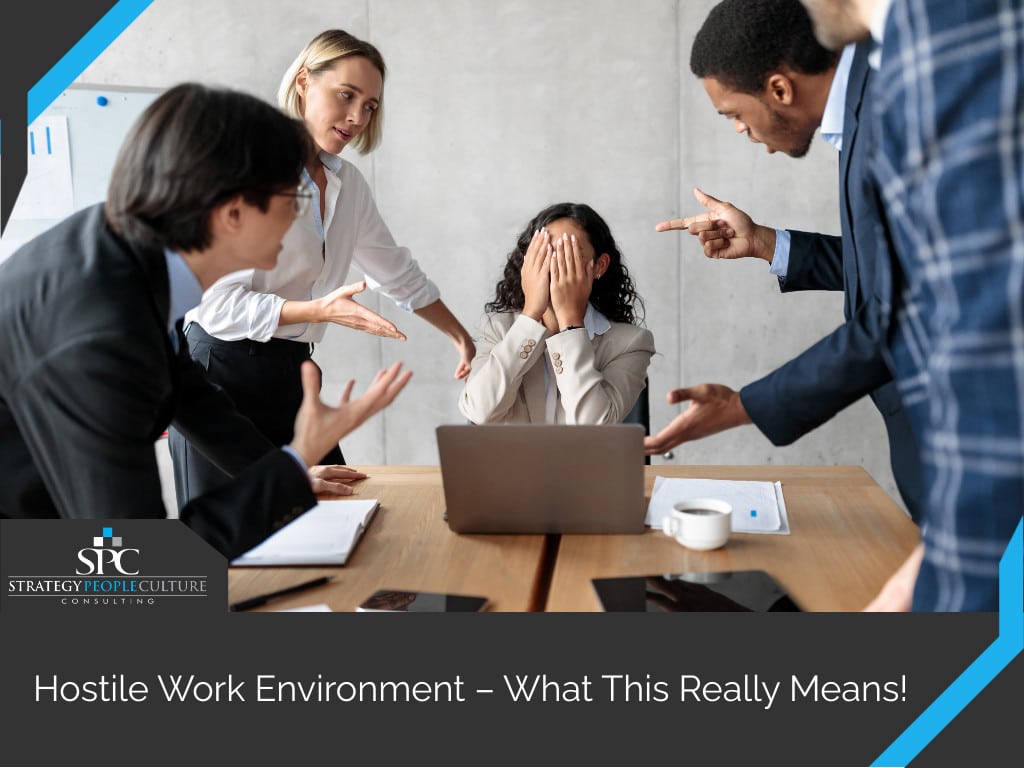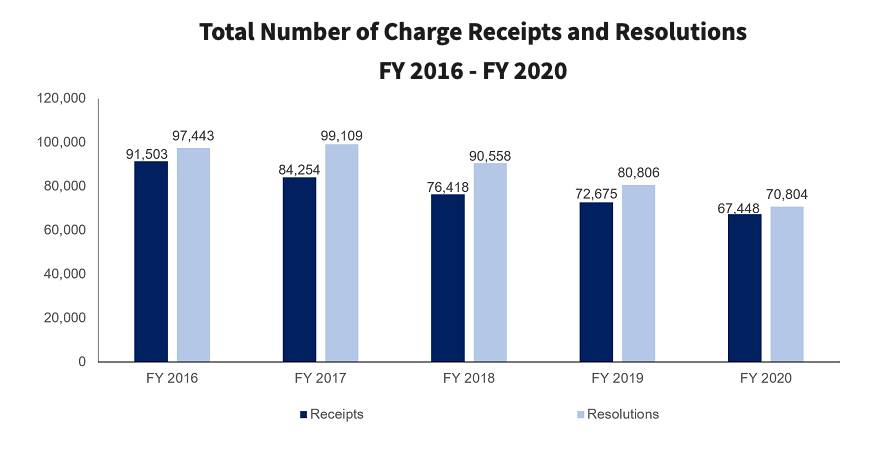Hostile Work Environment – What This Really Means!

Having run a practice for over a decade focused on EEO matters such as sexual harassment and discrimination issues in the workplace, the phrase hostile work environment is used frequently and is often misunderstood.
The Actual Definition
According to dictionary.com one of the definitions of “hostile” is “a person or thing that is antagonistic or unfriendly.” Certainly, this applies to situations of sexual harassment and discrimination in the workplace. When employers hear a term like hostile work environment, they are then put on notice their may be a harassment or discrimination claim, or some other issue in the working environment.
All employees in New Jersey and throughout the United States have a protected legal right to be free from sexual harassment and discrimination at work. However, do all hostile activities in the work environment violate individual rights? Whether you agree or disagree, legally speaking, employers do not have an obligation to be friendly towards their employees.
Having led a cultural change and networking with some amazing businesses that have excelled and received recognition, such as through Fortune Magazine’s 100 Best Places to Work For in America, it is abundantly clear to me strong, positive, and supportive work environments are good for business. In my view, intentional workplace cultures that are not antagonistic nor unfriendly to their employees will achieve greater success over time….this is a different topic, one such article may be Intentional Culture in the Workplace | Strategy People Culture.
So What is a Hostile Work Environment?
Taking the above definition, it would stand to reason this means an antagonistic and/or unfriendly encounter or set of encounters at work. That conclusion and often used approach by people is logical. For example, if I am walking down the hall and while passing a colleague put a big smile on my face and say “good morning” and receive no response back or even a more brash reaction like, “mind your own business” with an upside-down frown, is that a hostile work environment? It is certainly unfriendly and by many would be considered antagonistic. 
The workplace can be a difficult environment for a lot of reasons, but it is especially challenging when you’re dealing with offensive comments and actions based on a protected characteristic. These behaviors may create an intimidating atmosphere that makes working (or participating in certain activities) uncomfortable or abusive toward employees because of their gender identity/sexual orientation; race /ethnicity etc. This type of behavior would qualify as hostile under title VII law – Protection Against Discrimination in the Workplace.

What Does This Mean if You Are The Employer?
First and foremost, if one of your employees indicates they have been harassed, you should show empathy and try to understand the circumstances. Your employee is upset and remedying the situation is a good general rule of thumb, even if you determine there has not been a technical hostile workplace harassment action. Secondly, strong anti-harassment and anti-discrimination training explaining to your employees what workplace harassment and discrimination is, will not only better inform your entire team but may also help afford you further legal defenses should you ever have a working environment that does have sexual harassment or other forms of discriminatory situation.
What Does This Mean If You Are The Employee Who Thinks You Have Been Wronged?
When possible, tell the offender what they are doing that you find offensive. Next, step back and as whether the action(s) or conduct toward you been at least in part because of one or more of your protected classes or was it just behavior that you did not appreciate. I am a firm believer in good communication is helpful in many situations. If you have been subjected to sexual harassment or discrimination, you should report this to your supervisor, human resources, or someone else in management. Even if you have not been subjected to workplace harassment or discrimination and feel you have been inappropriate antagonized or treated in an unfriendly matter, you still may want to consider addressing it. The more your employer knows what is happening, the more the opportunity there is for help.
So Why Don’t Employees Speak Up or Bystanders Step In?
Certainly, the #MeToo movement has encouraged more people to speak up when they have been mistreated. That doesn’t mean people are not hesitant to come forward. Some of the more common reasons I hear revolve around fear of negative consequences and job retaliation. Those fears are not without merit as there have been more retaliation claims with the EEOC than any other single category of claim over the last 5 years.

Source: eeoc. Gov
It is important to understand as an employer you have potential legal liability in addition to other operational, production, and profitability challenges if retaliation is permitted. As an employee, you do have rights of redress and legal protections should you be retaliated against because of bringing forward good faith claims of sexual harassment or discrimination.
Conclusion
While the term hostile work environment is intuitively if not technically understood by some, treating people with respect and kindness is a productive approach to employee relations. Whether your business is in New Jersey or elsewhere in the country, anti-harassment and anti-discrimination training in the workplace is the right thing to do, sound risk management, aids in workplace productivity, and in many places, the law.
Strategy People Culture, LLC specializes in EEO training, workplace investigations, and executive/leadership coaching. If we can be of help, please do not hesitate to contact us info@strategypeoplculture.com or (833) ROCK – SPC.



